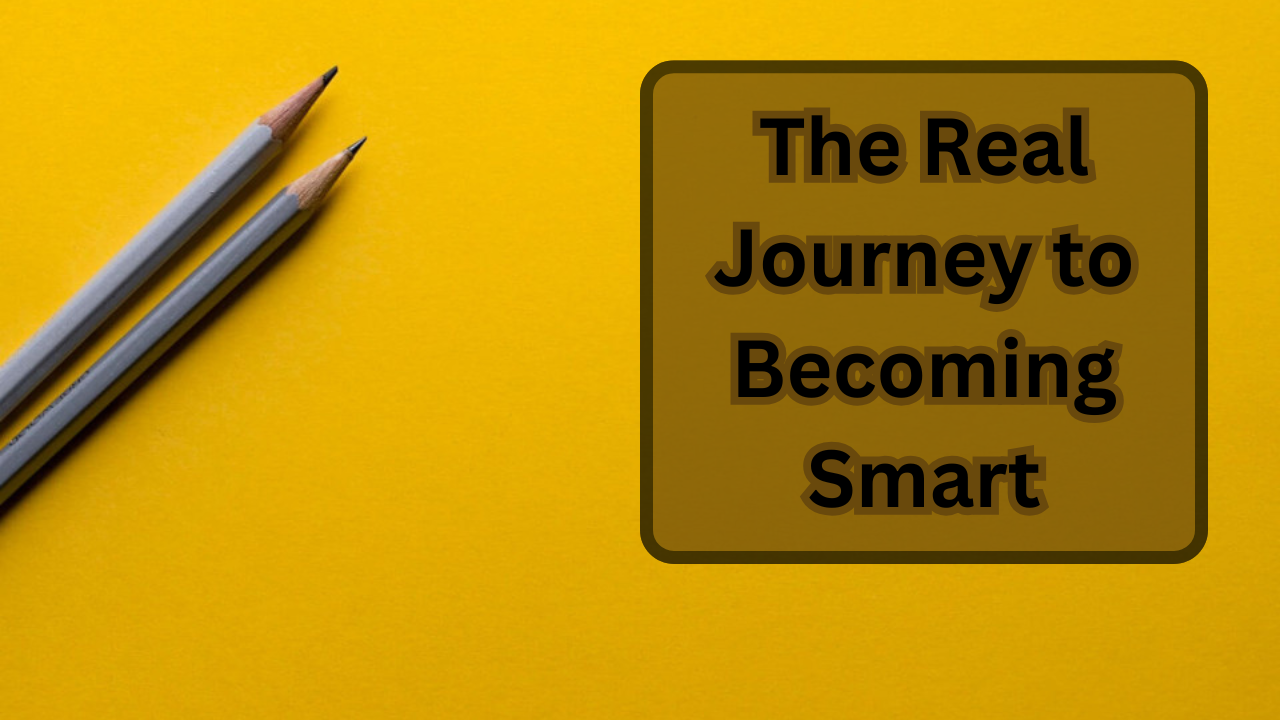Becoming smart often seems like a scary process relating to years of schooling, college, and graduate studies. The reality is that these conventional routes sometimes lead to frustration before success. For many, the journey ends with unemployment or underemployment, despite the ability to articulate their struggles powerfully online. However, becoming smart doesn’t have to be this complex or impossible.
Understanding Intelligence
Natural Human Advantage
Even if you feel that genetics are against you, compared to every other animal, humans are naturally overpowered. When we say we want to become smarter, it typically means learning useful skills, solving problems, excelling in challenging subjects, and presenting ourselves as competent without coming off as pretentious.
Flawed Advice on Becoming Smart
The problem with most advice on becoming smart is that it’s either overly vague or impractical. Suggestions like eating brain food, exercising, or listening to classical music might sound appealing but don’t actually teach you anything. On the flip side, some geniuses in history succeeded despite poor sleep and sitting at desks for hours.
Actionable Strategies to Become Smarter
Importance of Reading
To truly become smarter, you must focus on actionable and effective strategies, starting with reading. Reading is the cornerstone of gaining knowledge. Fiction helps you read faster, improves vocabulary, and provides social insights through dialogue, making you feel connected. Non-fiction, however, is crucial for acquiring facts and ideas that you can share in conversations to appear knowledgeable.
Presenting Knowledge Humbly
The key is to present what you know humbly. For example, instead of correcting someone with, “Well, actually…” opt for a softer approach like, “It’s interesting you say that; I recently learned…” This way, you teach others without alienating them, fostering respect and learning.
Finding and Utilizing Books
To find good books, start with topics that interest you and search for recommendations. While buying books is ideal, some might accidentally stumble upon websites offering free access to eBooks. Once you have a book, the next step is to practice what you learn. Simply reading isn’t enough; you need to actively apply the knowledge. For instance, if you’re reading about cleaning techniques, try cleaning a room to reinforce the lesson. Even skills that seem impractical to practice immediately, like jump-starting a car, can be retained by imagining the process vividly.
Practical Application of Knowledge
Mirroring School System Techniques
This principle of applying what you learn mirrors the school system’s reliance on tests and exams to simulate real-world applications. However, instead of forgetting information post-exam, you can retain it by integrating it into meaningful practice. Techniques like spaced repetition and mind mapping are helpful, but creating and solving practice questions simulates actual scenarios and helps solidify your knowledge.
Efficient Learning with Textbooks
For those eager to maximize learning efficiency, textbooks are unmatched. They condense essential information with minimal distractions and provide plenty of practice exercises. While not as entertaining as videos or podcasts, textbooks are a powerful tool for serious learners. If you’re up for the challenge, certain websites might help you find free access to textbooks in almost any subject.
Conclusion
In the end, becoming smart isn’t about tricks or shortcuts. It’s about actively engaging with knowledge, applying it in real life, and presenting it in a way that’s both useful and respectful. With consistent effort and the right mindset, you can quickly unlock your potential and impress yourself with your newfound abilities.
FAQs
Q1: What is the most effective way to become smarter?
A1: The most effective way to become smarter is to actively engage with knowledge by reading, applying what you learn, and presenting it humbly.
Q2: How can I find good books to read?
A2: Start with topics that interest you and search for recommendations. While buying books is ideal, some might find websites offering free access to eBooks.
Q3: What are some practical strategies for retaining information?
A3: Techniques like spaced repetition, mind mapping, and creating practice questions can help solidify knowledge and make it easier to retain information.
Q4: Are textbooks more effective than videos or podcasts?
A4: Textbooks are unmatched for serious learners as they condense essential information with minimal distractions and provide plenty of practice exercises.
